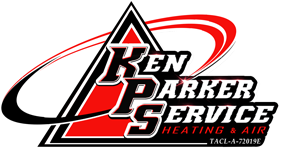FAQs about Indoor Air Pollution
Air quality and indoor air pollution is something that is commonly brought up by people attempting to sell gadgets that claim to make air quality better. However, what about air pollution once you move into a building? Is it something you should be concerned with? The following questions will help you gain a better understanding of the issue and how to solve it.
1. What Is Indoor Air Pollution?
Most people think of smog when they think of air pollution. However, this is only a small percentage of the actual pollutants you run into. In most buildings, you will find a plethora of biological contaminants and VOCs. This accounts for the pollen, dust, dirt, dust mites, chemicals from cleaners, gases from paints, gases from glues and so much more. It is actually these contaminants that lead many people to have exacerbated problems such as allergies and asthma.
Ken Parker Service, Inc. are experts in improving indoor air quality for residents in and around Greenville. Dealing with contaminants in your air is important, but so is preventing them from the start. That is why considering whole-home dehumidifiers is so important in humid climates.
2. What Are VOCs?
Volatile organic compounds, or VOCs, are man-made chemicals that are typically used and produced in the manufacturing of paints, pharmaceuticals and refrigerants. These include formaldehyde, butane, acetone and more. When it comes to indoor air pollution, these are commonly found from a number of sources. The first sources of pollution are the gases produced by the paint on your walls, furniture and the glue that holds your furniture together. The second sources are candles and air fresheners, which are also big culprits for VOCs.
3. How Do HEPA Filters Work?
HEPA filters are a major focus when it comes to improving indoor air quality. You see them on vacuum cleaners, as well as individual add-ons to your HVAC system. HEPA stands for high efficiency particulate air, and they are supposed to filter out 99.97% of all air contaminants sized 0.3 microns or larger. Unfortunately, HEPA filters restrict airflow to the point of not being able to pass air through your vents. Using MERV filters rated 14 or greater will provide the same level of filtration without restricting the airflow.
4. What Is the Difference Between Air Filters and Air Purifiers?
Whenever air quality is discussed, you will hear about filters and purifiers. However, these are distinctly different. Filters will remove particles from the air. However, some organisms like viruses are too small to be filtered out. For these kinds of contaminants, you need a purifier. Purifiers work to neutralize particles like viruses and molds. This means a virus will not replicate, but the filter will not remove it from the air.
5. What Are Ionizers?
Ionizers are a particular type of air cleaner. They do not neutralize particles the way purifiers do. Rather, they send out negatively charged ions. These adhere to positively charged ions that carry particles like dust and mold and draw them out of the air to settle on surfaces. So from an air quality perspective, they act more like a filter than a real purifier. There is no filter to clean, however. You do want to be careful with ionizers because they produce ozone, which can irritate people’s respiratory tracts. Be sure to read the instructions, and follow them carefully to get the best use out of your device.
6. How Often Should I Have my Air Ducts Cleaned?
Air ducts are one of the areas of your home that are most often neglected. They are, after all, mostly invisible, and yet highly susceptible to collecting all sorts of contaminants. As air moves through the ducts, it will pick up these particles and move them back into the air. To avoid this, you should have your ducts cleaned regularly. If you have a lot of dust in your home, you may want to have them cleaned annually. However, most homes will be fine having them cleaned once every three to five years.
What to Do If You Suspect You Have Air Quality Issues
If you suspect you have an indoor air pollution problem, the best option is to bring in a professional to evaluate the situation. Professionally trained and equipped air quality specialists will sample your air and help you determine the best options for creating the right system for your needs.
The team at Ken Parker Service, Inc. has been serving northeast Texas for over 40 years, improving your air quality, as well as providing general heating and cooling repairs and installation. Call us in Greenville to schedule your consultation today.




